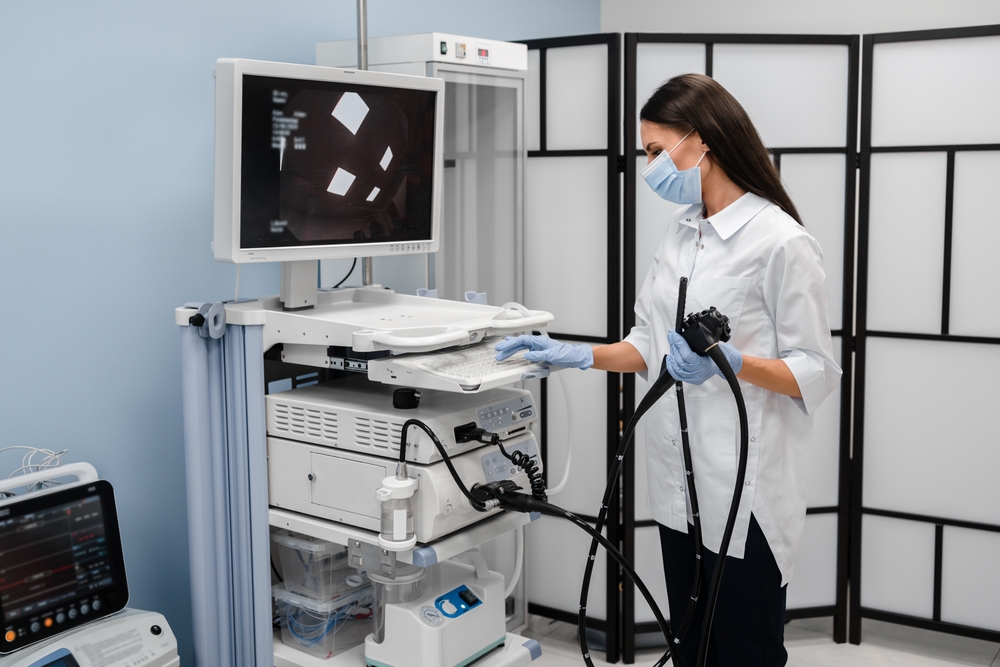Mark Kopec Now
Colonoscopy
Colonoscopy: A Lifesaving Procedure and Potential for Medical Malpractice
A colonoscopy is a medical procedure that allows for a direct visual examination of the inner lining of the colon (large intestine). It involves the insertion of a long, flexible tube equipped with a tiny camera into the rectum and slowly advancing it through the entire colon. This procedure is crucial for the early detection and prevention of colorectal cancer, a leading cause of cancer-related deaths. Unfortunately, a colonoscopy can also result in medical malpractice.
Anatomy of the Colon
The colon, also known as the large intestine, is a long, muscular tube that plays a vital role in digestion and waste elimination. It consists of several parts:
- Cecum: The first part of the colon, attached to the small intestine.
- Ascending colon: Travels upward on the right side of the abdomen.
- Transverse colon: Crosses the abdomen horizontally.
- Descending colon: Travels downward on the left side of the abdomen.
- Sigmoid colon: An S-shaped portion that connects to the rectum.
- Rectum: The final straight portion of the colon, leading to the anus.

Reasons for a Colonoscopy
- Colorectal Cancer Screening: The most common reason for a colonoscopy is to screen for colorectal cancer, especially in adults aged 45 and older.
- Diagnosis of Symptoms: Colonoscopies investigate symptoms such as:
- Changes in bowel habits (diarrhea, constipation, or a change in the consistency of stool)
- Rectal bleeding
- Abdominal pain or cramping
- Unexplained weight loss
- Fatigue
- Surveillance for Polyps: Regular colonoscopies for individuals with a history of polyps (abnormal growths) to monitor for their recurrence.
- Evaluation of Inflammatory Bowel Disease: Colonoscopy can also diagnose and monitor conditions like ulcerative colitis and Crohn’s disease.
Who Should Get a Colonoscopy?
- Age 45 and Older: All adults aged 45 and older should undergo regular colonoscopy screening, even in the absence of symptoms.
- Individuals with Increased Risk: Certain individuals may require earlier screening or more frequent colonoscopies due to increased risk factors, including:
- Family history of colorectal cancer or polyps
- Personal history of inflammatory bowel disease
- Personal history of certain genetic syndromes (e.g., familial adenomatous polyposis)
Types of Doctors Involved
- Ordering Physicians: Various doctors can order colonoscopies, including:
- Primary care physicians (family doctors, internists)
- Gastroenterologists
- Oncologists
- Surgeons
- Performing Physicians: Colonoscopies are typically performed by:
- Gastroenterologists
- Specially trained surgeons
How a Colonoscopy is Conducted – Medical Malpractice
- Preparation: The patient must undergo bowel preparation, usually involving a clear liquid diet and laxatives, to ensure a clean colon for optimal visualization.
- Sedation: The patient is typically given intravenous sedation during the procedure to minimize discomfort and anxiety.
- Insertion of the Colonoscope: The colonoscope is carefully inserted into the rectum and advanced through the colon.
- Examination: The physician examines the inner lining of the colon for any abnormalities, such as polyps, ulcers, inflammation, or bleeding.
- Polypectomy: If polyps are detected, they can often be removed during the colonoscopy using specialized instruments.
- Withdrawal: The colonoscope is slowly withdrawn, and the procedure is typically completed within 30-60 minutes.
What a Colonoscopy Can Show and Do
- Detect and Remove Polyps: Colonoscopies are highly effective in detecting and removing precancerous polyps, significantly reducing the risk of colorectal cancer.
- Diagnose Colorectal Cancer: Colonoscopies can identify early-stage colon and rectal cancers, allowing for timely treatment and improved outcomes.
- Diagnose Other Conditions: Colonoscopies can help diagnose other conditions affecting the colon, such as inflammatory bowel disease, diverticulitis, and infections.
- Assess the Severity of Existing Conditions: Colonoscopies can evaluate the extent and severity of existing conditions, such as ulcerative colitis or Crohn’s disease.
What a Colonoscopy Cannot Show or Do
- Detect All Cancers: While colonoscopies are highly effective, they may not detect all types of colorectal cancer, particularly flat or small lesions.
- Prevent All Cancers: Even with regular screening, there is still a small risk of developing colorectal cancer.
- Guarantee a Cancer-Free Life: A normal colonoscopy does not guarantee that an individual will never develop colorectal cancer.
Medical Malpractice and Colonoscopy
Medical malpractice related to colonoscopy can occur in several ways:
- Missed or Misdiagnosis of Polyps: Failure to detect or misdiagnosis of polyps during a colonoscopy can lead to missed opportunities for early intervention and increased cancer risk.
- Inadequate Bowel Preparation: Poor bowel preparation can obscure the view during the colonoscopy, leading to missed abnormalities.
- Inadequate Sedation or Monitoring: Complications can arise from inadequate sedation or insufficient monitoring during the procedure.
- Iatrogenic Injuries: Injuries such as perforation of the colon or bleeding can occur during the procedure due to surgical error or equipment malfunction.
- Failure to Obtain Informed Consent: Performing a colonoscopy without obtaining proper informed consent from the patient can constitute medical malpractice.
Analysis by Baltimore Colonoscopy Lawyer Mark Kopec
Improper technique can cause a bowel injury. You may need a colon and rectal surgeon to repair any damage. Sometimes this involves removing a part of the colon that was damaged. In many situations, the surgeon may be able to reattach the colon ends immediately. However, when damage is more extensive, you may need to have a colostomy bag while the colon ends heal. In cases of extreme damage, the colostomy bag may be permanent.
It is essential to consult with a qualified healthcare professional for any health concerns or questions regarding colonoscopy. If you have a potential medical malpractice case, then visit our free consultation page or video. Then contact the Kopec Law Firm at 800-604-0704 to speak directly with Attorney Mark Kopec. He is a top-rated Baltimore medical malpractice lawyer. The Kopec Law Firm is in Baltimore and pursues cases throughout Maryland and Washington, D.C.





